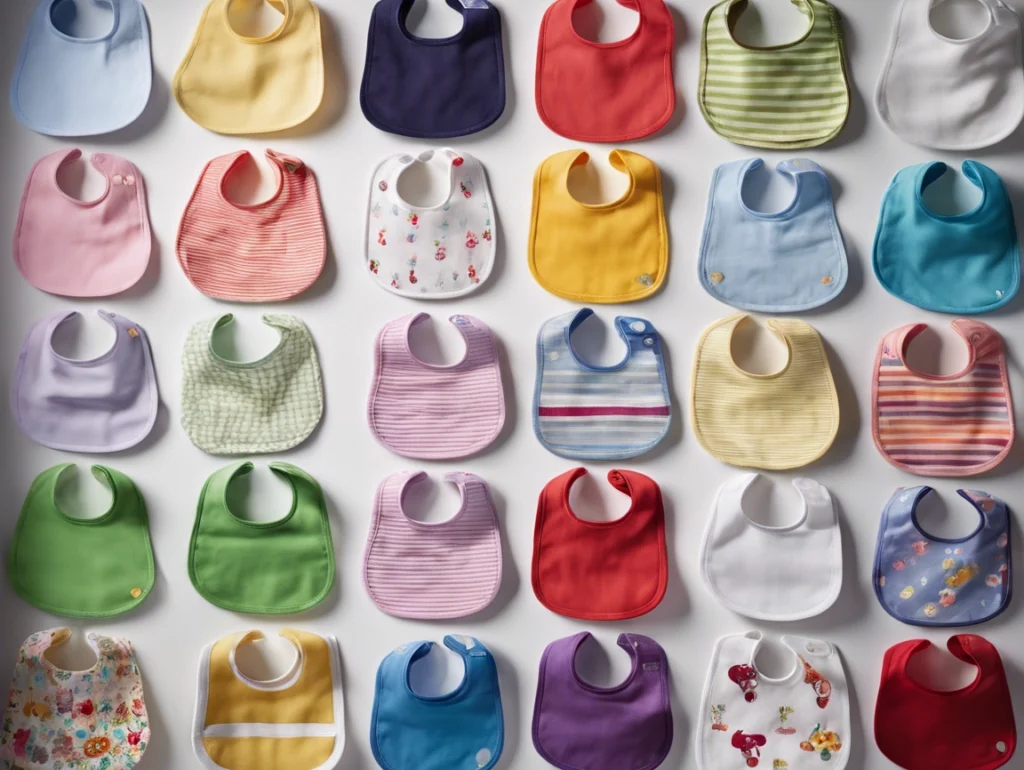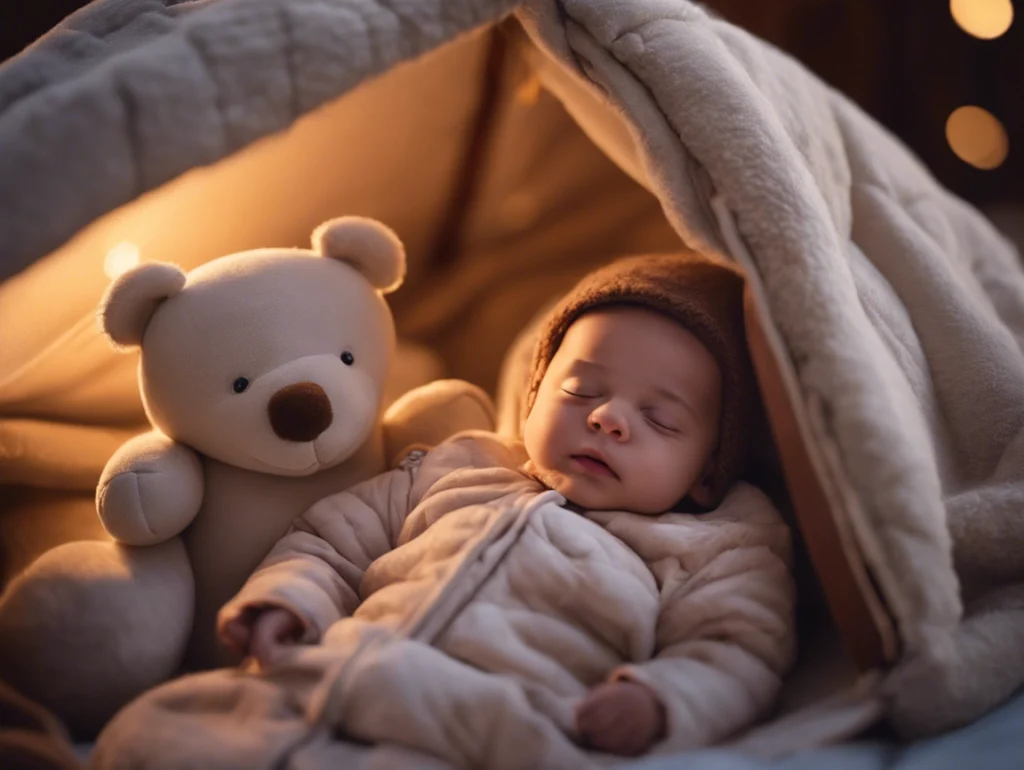Baby bibs are essential in every parent’s toolkit, making them a popular choice for wholesale buyers seeking high-demand products. However, to maximize profit and meet customer expectations, it’s important to use smart, cost-effective strategies when purchasing baby bibs in bulk.
In this guide, we’ll cover the best practices for buying baby bibs wholesale, key factors to consider in material and design choices, and tips on selecting reliable suppliers. By using these strategies, you can ensure high-quality products at competitive prices, enabling you to capture a strong share of the baby bib market.
Why Baby Bibs Are a Smart Bulk Purchase
Before diving into cost-effective strategies, let’s understand why baby bibs are a valuable item for wholesale buyers.
High Demand in the Baby Products Market
Baby bibs are a staple item for newborns, infants, and toddlers. They help keep babies clean during meals, teething, and drooling stages. With their universal need, bibs make a dependable choice for wholesalers looking to meet ongoing demand in the baby products sector.
Low Manufacturing Cost with High Resale Value
Due to simple construction and affordable materials, baby bibs have a low production cost, allowing wholesalers to set profitable markups. When bought in bulk, they offer high return potential, especially when combined with appealing designs and quality assurance.
Easy Customization for Targeted Marketing
Baby bibs are available in many designs, fabrics, and colors, making them easily customizable to align with market trends. Customizing bibs with unique patterns, themes, or branded logos adds value and creates a unique selling point.
Key Considerations When Buying Baby Bibs in Bulk
To optimize your wholesale purchases, consider these essential factors that influence the quality, cost, and appeal of baby bibs.
1. Material Selection: Durability and Comfort
The right material is crucial, as it determines the bib’s comfort, absorbency, and durability. Here’s a breakdown of popular materials used for baby bibs:
| Material | Benefits | Ideal Uses |
|---|---|---|
| Cotton | Soft, breathable, absorbent | Everyday bibs, general use |
| Organic Cotton | Eco-friendly, hypoallergenic, soft | Eco-conscious customers, sensitive skin |
| Bamboo | Naturally antibacterial, highly absorbent | High-end bibs, sensitive skin |
| Polyester | Water-resistant, affordable, durable | Messier meals, outdoor use |
| Silicone | Waterproof, easy to wipe, flexible | Baby-led weaning, reusable for long-term use |
- Cotton and Organic Cotton: These materials are preferred for their softness and absorbency, ideal for everyday wear. Organic cotton is particularly popular among eco-conscious parents.
- Bamboo: Known for its hypoallergenic and antibacterial qualities, bamboo is perfect for babies with sensitive skin.
- Polyester and Silicone: While polyester is water-resistant and budget-friendly, silicone bibs are easy to clean, durable, and great for babies learning to eat independently.
2. Bib Types and Usage
Baby bibs come in various styles, each catering to different stages and activities. When bulk buying, consider offering a range to meet diverse needs:
| Bib Type | Features | Best For |
|---|---|---|
| Bandana Bibs | Stylish, small, easy to wear | Drooling, teething |
| Feeding Bibs | Larger size, high absorbency | Mealtime, heavy spills |
| Silicone Pocket Bibs | Waterproof, pocket to catch food | Baby-led weaning, messy eaters |
| Smock Bibs | Full-coverage with sleeves | Craft time, extra protection |
| Disposable Bibs | Single-use, convenient for travel | Travel, on-the-go convenience |
Providing a variety of bib types in bulk allows wholesalers to appeal to parents’ different needs, from stylish drool bibs to full-coverage bibs for messy meals.
3. Fastening Mechanisms
The fastening mechanism plays a role in a bib’s ease of use and safety. Common options include:
- Velcro: Easy to put on and adjust, but may wear out over time.
- Snap Closures: Durable, adjustable for various sizes, and more secure than Velcro.
- Tie Closures: Classic design, but can be inconvenient for some parents.
- Pull-Over: Stretchy, easy to pull over the head without fasteners.
For bulk orders, snap closures are typically more durable and secure, providing longevity in high-wear bibs.
Cost-Saving Strategies for Bulk Baby Bib Orders
To maximize profits, it’s essential to use strategic methods when ordering baby bibs in bulk.
1. Source from Direct Manufacturers
Working directly with manufacturers rather than middlemen can help reduce costs. Direct sourcing allows for better pricing and the option to customize designs, packaging, and materials to match your brand.
2. Take Advantage of Tiered Pricing and Volume Discounts
Most manufacturers offer tiered pricing, with lower prices for larger quantities. Negotiating volume discounts can yield significant savings per unit, allowing for a better profit margin.
3. Consider Seasonality and Market Trends
Aligning bulk purchases with seasonal trends can help optimize inventory turnover. For example, animal and nature-themed bibs may be popular year-round, while holiday-themed bibs can drive high seasonal sales. By stocking up before peak times, you can leverage demand without experiencing supply chain delays.
4. Opt for Customizable or Reversible Designs
Reversible bibs offer two designs in one, giving consumers more value and enabling you to offer variety without doubling inventory. Customizable designs (such as logo printing or personalized patterns) add uniqueness, making these bibs stand out in the market.

5. Order Multi-Pack Options
Multi-pack bibs appeal to parents looking for value. By ordering multi-packs (such as sets of 3, 5, or 10 bibs), you can cater to budget-conscious customers and increase per-order value.
Choosing a Reliable Wholesale Supplier for Baby Bibs
Selecting the right supplier is essential for securing quality products and maintaining competitive pricing. Here are some tips to evaluate potential suppliers:
1. Quality Assurance and Certifications
Ensure the supplier’s bibs meet safety standards, such as OEKO-TEX® certification, which guarantees they’re free from harmful substances. High-quality materials should also withstand frequent washing without fading or shrinking.
2. Custom Branding Options
Many suppliers offer private labeling, which is essential for wholesalers wanting to establish a unique brand. Look for suppliers who provide customizable logos, colors, and packaging to differentiate your product line.
3. MOQs (Minimum Order Quantities)
Each supplier has a minimum order quantity. Choose a supplier with an MOQ that aligns with your budget and inventory requirements. Some suppliers may offer sample orders for smaller quantities to test product quality before placing a large order.
| Supplier Evaluation Criteria | Importance Level | Key Considerations |
|---|---|---|
| Quality Certification | High | OEKO-TEX® or similar certifications |
| Customization Options | High | Private labeling, color, pattern customization |
| MOQ Flexibility | Medium | Minimum order requirements that fit your needs |
| Lead Time | High | Efficient production timelines |
| Customer Support | High | Reliable communication, after-sales support |
Marketing Tips for Selling Baby Bibs to Retailers and End Consumers
Once you’ve secured quality products at competitive prices, the next step is to effectively market them. Here are some marketing strategies to help your bibs stand out.
Highlight Unique Selling Points in Product Descriptions
SEO-friendly keywords such as “organic baby bibs,” “waterproof silicone bibs,” and “baby bib multi-packs” can help drive traffic to your product pages. Emphasize key features, like eco-friendly materials, unique designs, or multi-pack options, to attract specific customer segments.
Leverage Social Media Visuals and Influencers
Platforms like Instagram and Pinterest are ideal for showcasing baby products. Partner with parenting influencers or create engaging visuals that highlight the bibs’ stylish designs, functionality, and comfort.

Offer Educational Content to Add Value
Provide guides on selecting the right bibs for different stages or tips on caring for reusable bibs. This type of educational content can build trust and encourage buyers to purchase your products.

Frequently Asked Questions About Bulk Buying Baby Bibs
Q1: How can I find a reliable baby bib supplier?
To find a reliable supplier, research established manufacturers, check for certifications like OEKO-TEX®, and request product samples to verify quality. Reading reviews and consulting with other buyers can also provide insights.
Q2: What is the best material for baby bibs?
It depends on the use case. Cotton and organic cotton are ideal for everyday use, bamboo for sensitive skin, and silicone for waterproof, easy-to-clean options.
Q3: How can I reduce shipping costs on bulk orders?
To reduce shipping costs, consider ordering in larger volumes to get bulk discounts. You can also look for suppliers that offer free or discounted shipping for high-volume orders.
Conclusion: Mastering Cost-Effective Bulk Buying for Baby Bibs
Investing in baby bibs as a wholesale product offers excellent opportunities for profit and brand growth. By understanding the right materials, designs, and cost-saving techniques, you can secure a competitive edge in the market. With the right supplier and strategic planning, your business can meet the needs of parents seeking quality, value, and convenience in baby bibs.
Following these tips will ensure you get the best possible price on high-quality baby bibs, allowing your wholesale business to thrive in this essential baby products market.

